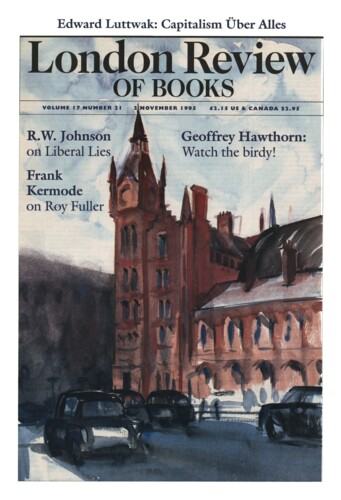Apoplectic Gristle: Wyndham Lewis
David Trotter, 25 January 2001
The day he first met Wyndham Lewis, shortly after the end of the First World War, Ernest Hemingway was teaching Ezra Pound how to box. The encounter took place in Paris, where Pound had a studio, and Lewis, impassive beneath his trademark wide black hat, seemed content to watch in silence. ‘Ezra had not been boxing very long and I was embarrassed at having him work in front of anyone he...





